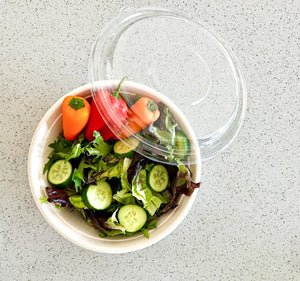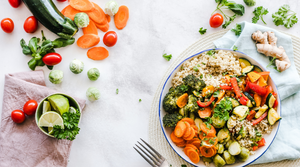Subscribe to our newsletter for 10% off your first order!
Are You Addicted to Sugar?
Fancy a creamed cupcake, syrup filled doughnut or sweetened carbonated drink every now and then? Or especially when you need a ‘mood boost’ on a grey day or need fillers in between meals and sweet temptations to end a meal?
Well you are one of the true blue descendants of our hunter forefathers!
"Sugar is a deep, deep ancient craving," said Daniel Lieberman, an evolutionary biologist at Harvard University and author of "The Story the Human Body: Evolution, Health, and Disease." During those times when hunting for food does not necessarily guarantee getting one, the sugar intake helps to store fat for leaner days. When we eat sugar, our bodies break it down into glucose and fructose. Fructose activates processes in our body that make us want to hold on to fat. Hanging on to fat in that bygone era was an advantage, not a health risk. The food challenges faced by our ancestors have resulted in us biologically craving sweets. In fact this love/hate relationship with sugar starts at birth. We are born with a sweet tooth. But the problem today is that we do not face food challenges and there is too much sweet stuff readily available.
Sugar is also thought to trigger an almost euphoric feeling in our brains upon ingestion. Many studies have proven that sugar has the same impact as hard drugs such as cocaine and heroin. We crave for it and get withdrawal symptoms if denied access.
Sugar addiction poses health risks such as obesity, tooth decay, high blood pressure and even heart disease and diabetes. It is estimated that a total of 347 million people worldwide have diabetes and that figure is set to rise to more than half a billion in the next 20 years. (Source: http://www.bbc.co.uk/news/business-35418947). In the UK alone, 2.9 million people have diabetes, the number having doubled since 1996 and by 2025, five million people will have diabetes, mostly type 2 diabetes linked to obesity (Source:diabetes.org.uk)
So how do we tackle this addiction? Should food companies pay a ‘sin or rather a sugar tax’ (similar to carbon tax) for putting sugar in their products?
Or should it be our responsibility to make healthy food choices?
Can we re-program our palate and food habits to reduce our intake of sugar?
Here are some tips:
- Be aware of the spoonfuls of sugar you add to your beverage and cereals or fruit bowls. Make the sugar bowl or jar harder to reach or put a tiny winy spoon in your sugar jar so that even if you do add sugar each spoonful is very little. Count the number of spoons per day and gradually reduce it.
- Reduce your intake of sodas, sweetened drinks, fruit juices and beverages. Much of our sugar intake comes from the drinks we consume rather than the food. Many healthy sounding drinks often ruin your diet, even diet sodas! Wean yourself by drinking healthy flavoured water, e.g. water flavoured with mint, frozen raspberries, etc.
- If water does not work, wean yourself from sweetened drinks by adding stevia powder instead of sugar or artificial sweeteners. Avoid artificial sweeteners as their toxicity far outweighs any benefit they give in way of reduced calorie foods. Stevia is a natural, plant-based sweetener that has virtually no calories and doesn’t carry the health risks that artificial sweeteners do. Over time you can gradually decrease the amount that you put in your water, coffee, or tea, until you don’t feel the need to add flavouring any more.
- Satisfy your sweet tooth with a natural sugar source such as fruits.
- Check the Nutrition Facts label on your food products especially processed foods, carefully before buying them. Sometimes there will be small amounts of many types of sugars, so they are not listed in the first few ingredients. Unfortunately very few food manufacturers call sugar by that name on the label. They often use other terms that are harder to decode. One rule of thumb is to look for any word ending in “ose” such as sucrose, fructose, dextrose, glucose, lactose, maltose and corn syrup. These are most likely sugars. Other times sugar masquerades as apparently more ‘healthy’ ingredients such as honey, rice syrup or even ‘organic dehydrated cane juices’. You’ll see a row halfway down the label that provides the total number of sugar grams in each serving of the product. Stick to food with less than 8g of sugar per serving.
- Eat regular meals and healthy snack as sugar craving strikes when your stomach is empty. Never skip breakfast but ensure that your breakfast is not laden with sugar.
- Include protein and healthy fats in your meals as well as complex carbs such as wholegrain food as these take longer to digest and will therefore make you feel full longer and starve off the sugar cravings.
- Lastly, drink plenty of water and exercise regularly.




